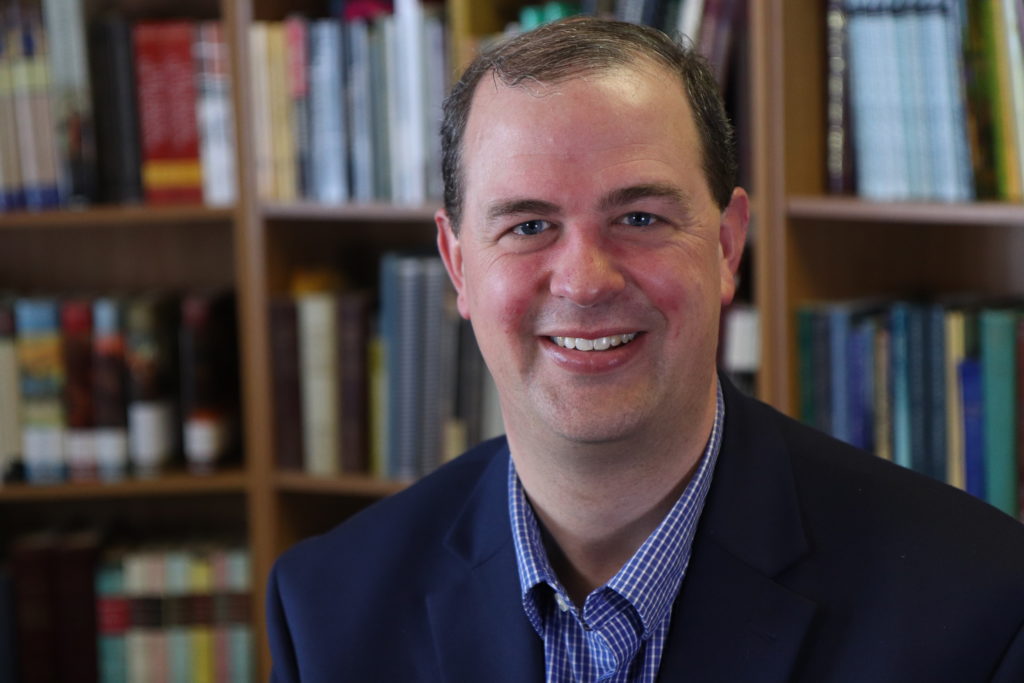I received deep training in the humanities, achieving a PhD in Judaism & Christianity in Antiquity. I loved learning about the past and why it still matters today. I was inspired by great teachers and scholars who cared enough about me as a learner that they designed learning that best helped me to master the field. I was exposed to millennia of thinkers and thinking, including a healthy dose of philosophy spanning the time of the ancient Greeks up to the modern day. Appreciating the field of philosophy specifically and the Humanities more broadly, I found this article deeply disturbing “Message to my Freshman Students.”
Can this philosophy professor be taken seriously when making such arguments? The arguments he makes should be deeply embarrassing to the field of philosophy that so many of us appreciate and believe actually matters to the world. The arguments this professor makes are a poor representation of many of the thinkers, scholars, and teachers of philosophy that I know.
But when I see arguments like this put out to the world and throngs of professors agreeing with the statements without a second thought, without critical judgment about the assumptions espoused and the implications of the professing, I’m worried. Learners deserve much better than this from university professors. I would unequivocally say that any learner exposed to such a professor would be measurably worse off in their lives, their views, their charity and empathy for others, their willingness to dig deep into the hard work of learning. Professors who espouse views, as expressed in this article, create serious and sustained obstacles for the very change all of us (teachers, learners, the general public) seek to see in Higher Education, change that should begin with the professors, flow through the learners, and then eventually transform society.
Unfortunately, and deeply disturbing, this philosophy professor is seeking to defend a teaching style invented some 700 years ago as though the problems and needs of 700 years ago perfectly correlate to the learning needs of learners today.
Such thinking calls into question the intellectual integrity of the professor and compromises a learner’s view of the field of philosophy. If philosophers can so blithely dismiss the entire discipline of education (its researchers, its modes of scholarly production, the knowledge that the field of education produces about how learning is most likely to happen) why should any learner take the discipline of philosophy seriously? Shouldn’t the discipline of philosophy (and all academic disciplines for that matter) inspire learners to take seriously the forms of knowledge produced by the myriad diversity of academic pursuits?
This philosopher seems to suggest that the only forms of knowledge that should be pursued and honored are those that were invented in the 13th-14th centuries (when universities and lecturing where invented). Since this philosopher appears to only want to profess in the forms invented hundreds of years ago, is there anything since the 13th-14th century that this philosopher is willing to accept? And what are the criteria used for making those choices of acceptance and dismissal? For example, if the forms of teaching and learning from 700 years ago are good enough for today’s learners, then why isn’t this philosopher-professor teaching in Latin? Why use such a degraded and mongrel language as 21st century English? Wait, what is that? The professor uses English because in an English speaking environment it would be impossible for learners to learn if he preached/professed in Latin? Just as our language has changed, so has our understanding of how learners learn (and how teachers should teach). Shouldn’t the professor be willing to accommodate the new knowledge that rigorous educational science has discovered, especially since these approaches are more likely to help his learners appreciate and master his cherished field of philosophy?
I would tell any learner considering a class from this professor to at all costs, avoid this professor. His views on learning are deeply misinformed and deeply problematic. His views on learning are entirely inconsistent on what the science of education has discovered about how people learn and grow. Those who truly love philosophy and truly wish for others to fully embrace the essential, beautiful, important, and meaningful ideas from the field of philosophy would never embrace such a crass, condescending, and ill-informed view of learners.
Here are some of the offensive statements that ultimately treat learners as objects to be abused while the professor safely sits in his chair of intellectual and academic superiority.
Professor-philosopher says: “First, I am your professor, not your teacher.” My translation: “I’m an expert, i.e., a hoarder of truth. Come sup from me, the fount of knowledge. I could care less who you are, your background, your fears, your dreams! Your individuality needs to be subsumed to the borg of my profession and my professional knowledge. If you cannot figure out how to master on your own my professional expertise and the expertise of my guild (which only admits a few lucky ones to be hazed by the system for up to a decade) then you are worthless to the world and intellectually inferior.”
Professor-philosopher says: “It is not part of my job to make you learn.” My commentary: Another abysmal view of what it means to be a professor. If tax payers have a hard time having good feelings towards publicly funded higher education, specifically philosophy programs, this professor’s attitude is significant part of the reason. Doesn’t this philosopher realize that the learner in his course will eventually move on to other things in their lives (besides philosophy)? And if they’ve had a terrible experience because of the intellectual hubris of the professor and the arcane and out-dated educational philosophies foisted on eager learners, there should be no surprise that as voters these learners don’t think it is worth their time or money to pay this professor’s salary. Yet this is the very issue. Philosophy matters! It can be stimulating, inspiring, life-changing. But if a professor eschews the calling to help others to learn, then the future of the discipline is in serious jeopardy.
Professor-philosopher says: “Secondly, universities are ancient and tend to do things the old-fashioned way.” My commentary: No, you, mister philosopher-professor, have picked and chosen selectively. You certainly do not do things the old-fashioned way. As I mentioned above, you don’t teach in Latin. You don’t wear your doctoral robes. You don’t live with the learners. You don’t get paid directly by the learners. You are not liable to lose out on payment if the learners don’t like your teaching, as used to happen in the 13th-14th centuries. And you let learners buy books! Before the age of the printing press, access to books from the experts was nigh impossible. Therefore, learners signed up to take a class from the expert who then lectured (French = read) their hand-written notes of topic expertise to the learners who dutifully served as student-scribes. There are so many ways in which the author of this article does not do things the old-fashioned way. If anything, he does the old-fashioned thing of not subjecting to critical rigor his assumptions about what teaching and learning are. He demonstrates no facility, let alone familiarity with the science of teaching and learning. This professor hides behind the phrases “ancient” and “old-fashioned” to avoid critical inquiry into his own professional obligations.
Professor-philosopher says: “Finally, when you go to a university, you are in a sense going to another country, one with a different culture and different values. I have come to realize that the biggest gap between you and me is a cultural difference. I have absorbed deeply the norms and values of an ancient academic culture and they are now a part of me.” But the Professor-philosopher says also says: “The kind of listening you need to learn is not passive absorption…; it is critical listening.” My commentary: There is significant irony in these quoted statements. The professor wants learners to learn to think critically. And yet, this professor seems to have entirely missed out on critically evaluating Higher ed. He simply consumed and took as given the entire culture of Higher ed handed to him. It seems to me that this professor passively absorbed the ancient ways of universities without any critical thinking. This is the principle of “do as I say, not as I do.”
Professor-philosopher says: “Your professor still harbors the traditional view that universities are about education.” My commentary: This final statement is entirely incongruous with the sentiments the professor expressed in his article. If the philosopher-professor truly believed that universities were about education, then he would be far more involved in the science and art of teaching and learning, not professing views that should have disappeared during the age of Gutenberg (the 1460s).
Professors that espouse the ideas suggested in this article should practice what they preach. I argue that if we are to take this professor seriously, we can only listen to his arguments on the matter of teaching and learning after he has spent 4 years (like a typical undergraduate) at the feet of experts in the field of education (i.e., human cognition, psychology, learning sciences, instructional design and technology, etc.). And only if he has undertaken this with humility, perseverance, and success, only then will his voice on matters of teaching and learning be worth listening to.
Isn’t there a philosophy about servant leadership? Such an approach to teaching and learning would, I argue, have a much longer and positive effect on learners than the dismissive and uniformed view expressed by this philosopher.
I’ve known and admired many fine philosophy teachers and scholars. Most of them do not share the views expressed in the “Message to my Freshman Students” article. Most of them care deeply about their learners and see their work as a professor as a sacred calling to help others to learn, to be transformed, to have their lives changed by the vast expanse of human thought that has gone on before.
I’m sorry that this professor, for whatever frustrating experience he has had recently or in the past with his teaching or his learners, would so besmirch the field of philosophy by making so many unsubstantiated and vacuous arguments about what it means to be a teacher or a learner.
Learners would be well served to have their eyes wide open that this philosopher-professor is deeply misinformed, preaches dangerous ideologies about what it means to be a learner, and disrespects his own profession and field, and the other fields represented by a university environment.
No academic discipline can long survive the hubris of looking down upon the crush of base humanity as inferior intellects mostly incapable of learning.
May we have more professors that are more committed to the cause of learning by putting learners first and foremost, while we maintain critical suspicion about our own fields, academic pedigrees, and scholarly culture.





